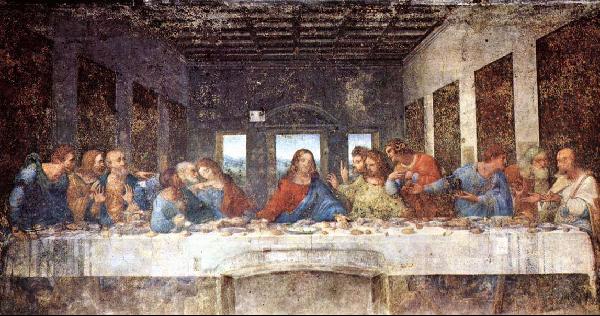This is the second post on The Lord’s Supper. Last time we looked at the subject from the perspective of consumption. Today I want to focus on community.

Paul Metzger is a professor at Multnomah Seminary (where I attend). He wrote a phenomenal piece for The Leadership Journal, and it was featured on the Out of Ur blog as well. He connects this idea of community and The Lord’s Supper and even ties into coffee as well. Here are the best parts:
Consider that in many churches the coffee bar has displaced the Lord’s Table as the place where real community happens. Due in part to the neutralizing of sacred space that has been popular since the 1980s, churches began removing or deemphasizing the Lord’s Table and introducing coffee bars. Without doubt the desire has been to build community by offering people a culturally familiar setting to engage one another. But we must ask: What formative message does a coffee bar convey?
A coffee bar mostly carries the values of our culture. We’ve come to expect coffee bars to offer a number of choices to meet our desires (decaf, tea, hot chocolate), and the setting is one of leisure and comfort. We usually gather in affinity groups. We sip the beverages not because we’re thirsty but because we’re conditioned to want them.
By contrast, what does the Lord’s Table convey? It is a symbol of sacrificial love that breaks down cultural divisions and barriers of affinity. It reminds us that life is about being chosen by the Lord for interpersonal communion rather than choosing to consume stuff, and it reminds us we are called to take up our cross rather than seek personal comfort.
Both the coffee bar and Lord’s Table affirm community, but the kind of community they affirm differs significantly. Churches with coffee bars may have to work harder to ensure they are fostering community around the values of Christ rather than casual consumerism.
One of the great things about the celebration of The Lord’s Supper in the Protestant tradition is that it places everyone on an equal playing field. All are in need of Christ’s sacrifice. I saw this on Sunday night:
Every church in the world is trying to find ways to help their church be more of a community. But we’ve taken the community aspect out of Communion by making it solely an individual experience with God. Was this really everything Jesus had in mind?
The name communion inspires the thought of community, yet it is not a word I think of when it comes to the celebration of the Lord’s Supper as most churches practice it.
I wonder what would happen if we consciously celebrated Communion by emphasizing communion with others and with God…instead of the individualistic thing we have made it.
